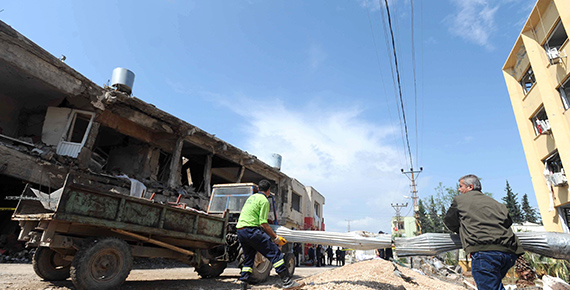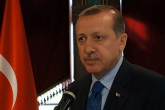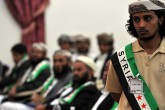Against the Reyhanli terror attacks, the most common and widespread reaction was shown by the advocates of the liberal-left discourse as a naïve “Look, what happened!” type of complaint ornamented with the dooms day clichés and the zest of denunciation. Dare to warn Turkey with this low-level discourse is pathetic indeed, considering the fact that she has lost thousands of her people to similar terrorist activities in the last 30 years. Another appearance of such a low-level cry is to claim that in the Syrian crisis – claiming tens of thousands of lives- Turkey’s position was troublesome, or even collapsed, because her foreign policy was based on “imagination or unfamiliarity with the Middle East”. Obviously, there has been made no descent political proposals by the adherents of these two approaches; to the more, they do not seem to feel such responsibility. It is impossible for those who voice the latter cry, in particular, to understand the fact that they are not offering a political proposal but a “political criticism” and of course do not see the huge “political difference” between the two. The tragedy is that those who think they fiercely make liberalist criticisms believe that “making political criticism” – one of the methodological pillars of liberalism – is “politics” itself.
The claim of “Turkey’s policy in Syria is wrong” makes sense only if it is based on some material information and analyses. Besides, from security analyses to the refugee issue, from the Israeli factor to the position of Iran, from the intelligence capacity to the military skills, from the costs of proxy wars to the international law issues, from economic evaluations to social risk analyses, we have in front of us a huge area and piles of materials. Since this is the case, the shelf-life of all the analyses made skipping over all such headings is very short indeed. Turkish foreign policy, however, tries to build a wide area of context. First of all, the basis of this context and how it has been shaped in the last ten years, in particular, should be understood correctly. This is because Turkish foreign policy on Syria is simply a part of this eco-system. The political context at issue here is still in the construction phase. It could be fair enough to say that this policy is the reflection of the on-going internal change in Turkey on her foreign policy. As the State undergoes a self-fortification, progress is made in this construction process as well. Turkey is trying to collaterally reflect her internal changes on the foreign policy in terms of limits in both methodology and capacity. Again, speaking in general, both negative and positive reactions shown during the process of domestic changes in Turkey and the owners of such reactions have also shown up in the arena of her foreign policy. The new development that seems surprising today is the following: The groups who criticized Prime Minister Recep Tayyip Erdogan in the headlines in yesteryears claiming that “He cannot even be the leader of a parish” and shouting “Turkey cannot be a Malaysia”, are today side by side with the groups who prior to the 2007 general elections raised stakes claiming that “The AK Party cannot even win the 34 percent of votes this time that it had won in 2002” and promoted their Kemalist reflexes to the level of chanting the slogan “The Islamic world will not be a Malaysia.”
SYRIA ANALYSES VOID OF SYRIA
Most of the evaluations that have been made by the media and political circles about the Turkish foreign policy in Syria have three characteristics in common: They are void of Syria, baseless and conspiratorial; the style that holds these three characteristics on the sly is ‘generic evaluations’. Analyses are mostly done without including Syria in topic. The reason is that it is almost impossible to identify any Syria-related expertise beyond just being readers of and writer
In this article
- Foreign Policy
- Opinion
- 2002
- 2007
- Elections
- International Law
- Islam
- Islamic
- Islamic Republic of Iran
- Israel
- Kemalism
- Malaysia
- Middle East
- Prime Minister
- Proxy War
- Recep Tayyip Erdoğan
- Syria
- Syrian Civil War
- Syrian Conflict
- Syrian Crisis
- Terror Attack
- The President of the Republic of Türkiye
- Turkish Foreign Policy
- Turkish President
- Türkiye's Foreign Policy
- Türkiye's Justice and Development Party | AK Party (AK Parti)
- United States (US)



